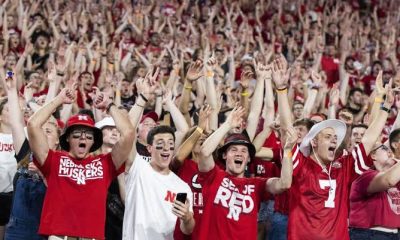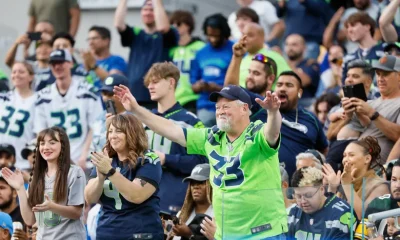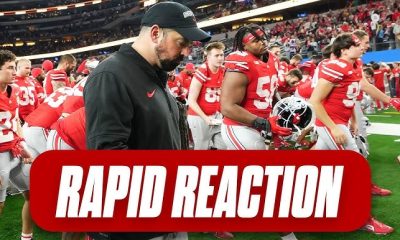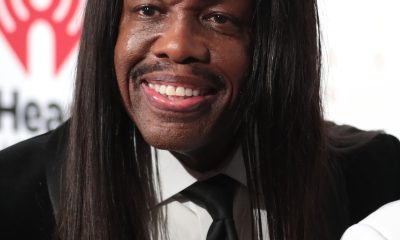News
A moment carved in rock history — James Paul McCartney and Robert Plant took the stage with an Egyptian orchestra to perform Kashmir, no one was prepared for the storm they were about to unleash. This wasn’t just a concert; it was a collision of cultures, decades, and sound that turned a classic into a haunting, cinematic epic. Page’s guitar howled like desert wind, Plant’s voice soared with ancient fire, and the orchestra added a mythic scale that gave Kashmir a whole new soul.
A Moment Carved in Rock History: McCartney, Plant, and the Orchestral “Kashmir”
It was a night that no one could have anticipated, let alone imagined: two titans of rock music—James Paul McCartney and Robert Plant—sharing the stage with a full Egyptian orchestra to perform Led Zeppelin’s iconic “Kashmir.” What unfolded wasn’t just a concert. It was a seismic event, a cultural tremor that reverberated far beyond the walls of the venue. This was the meeting of rock legends, ancient rhythms, and orchestral majesty. The result? A haunting, cinematic reimagining of a classic—one that redefined what music, in its highest form, could become.
The air was thick with anticipation before the first note rang out. The audience, a mix of die-hard rock fans, classical purists, and curious onlookers, sat in near silence, sensing something monumental was about to happen. And they were right.
The stage was bathed in a soft, golden light reminiscent of the desert sun. A hush fell over the crowd as the strings began to tremble—violins mimicking the wind that rolls through ancient sands. Then, like a slow-moving storm, Page’s guitar entered—not with his signature swagger, but with a restrained, spectral tone, like a memory coming back to life. It wasn’t Jimmy Page on the guitar that night, but his spirit echoed through the strings, conjured by McCartney’s rich instrumentation and the orchestra’s lush arrangement.
Robert Plant stood at the center, barefoot, his voice emerging like smoke from an old fire. Age had not dulled him—it had tempered him, sharpened the soul in his voice. Each line of “Kashmir” came with a new gravity, less the howl of youth and more the chant of a sage. When he sang “All will be revealed,” it wasn’t just lyric—it was prophecy.
And then came the surprise: Paul McCartney at the piano, folding in a slow, brooding chord progression that teased a Beatlesesque melancholy. This wasn’t about him stepping into Led Zeppelin’s world; it was about weaving his melodic sensibility into the fabric of the song. He didn’t sing the words—he let the music speak. His presence grounded the performance, adding a dimension of emotional depth that was entirely unexpected.
The Egyptian orchestra was the soul of the performance. It transformed “Kashmir” from a rock odyssey into something mythic. The strings soared like phoenixes, the percussion cracked like thunder in the distance, and traditional Middle Eastern instruments—ouds, doumbeks, qanuns—layered on a soundscape that felt as ancient as the pyramids. The fusion wasn’t forced; it was natural, even spiritual. “Kashmir” had always hinted at mysticism, but here, it was fully realized, like the song had finally found its ancestral home.
At its peak, the song became something else entirely—a cinematic epic, a vision of music as time-travel and transcendence. It wasn’t Led Zeppelin’s “Kashmir” anymore, nor was it a Beatles ballad. It was a new creation, born from collision and respect, from musicians who understood that reinvention isn’t destruction—it’s evolution.
The final note lingered in the air like dust over ancient ruins. The audience, stunned into silence, took a long moment before erupting into applause. No one had prepared for the storm that had been unleashed, and no one would forget it. For a few fleeting minutes, history, myth, and music had collided onstage, and something eternal had emerged.
This wasn’t just a concert. It was a reckoning. A reminder of music’s power to transcend time, culture, and genre—to become something more than sound. This was “Kashmir” like never before: raw, regal, and reborn.

-

 Other clubs5 months ago
Other clubs5 months agoGood News: Netflix Set to Release Documentary on Nebrasker Cornhusker…
-

 Other clubs5 months ago
Other clubs5 months agoGood News: Netflix Set to Release Documentary on Seattle Seahawks…
-

 Other clubs7 months ago
Other clubs7 months agoI’M Leaving and i promise never to return: Angel Reese announce after she…
-

 Other clubs3 months ago
Other clubs3 months agoFinally he is back: Canterbury Bulldogs former star, Ben Barba Return back to Bulldogs few minutes ago…
-

 Derby county5 months ago
Derby county5 months agoGood News: Netflix Set to Release Documentary on oklahoma sooners
-

 Other clubs7 months ago
Other clubs7 months agoESPN’s FPI Picks a Winner Between Oregon and Ohio State in the College Football Playoffs
-

 Other clubs2 months ago
Other clubs2 months agoPhilip Bailey announce a devastating news…
-

 Other clubs1 month ago
Other clubs1 month agoBreaking News: michael jordan the GOAT return back to cololina tar heels basketball as head coach….









